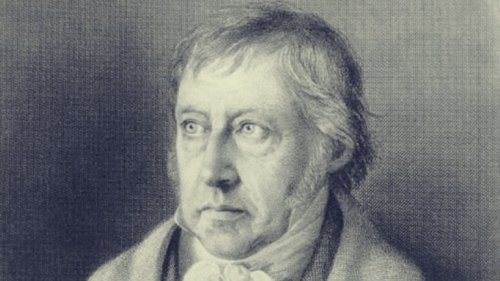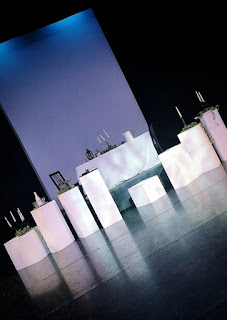Waiting for Godot Human Life
There is no apparent meaning to our existence, and yet we suffer as a result of it. The world seems chaotic. We therefore try to impose meaning on it through pattern and fabricated purposes to distract ourselves from the fact that our situation is hopelessly unfathomable. "Waiting for Godot" is a play that captures this feeling and view of the world, and characterizes it with archetypes that symbolize humanity and its behavior when faced with this knowledge. According to the play, a human being's life is totally dependant on chance, and by extension, time is meaningless. Therefore, a human's life is also meaningless, and the realization of this drives humans to rely on outside forces, which may be real or not, for order and direction. The basic premise of the play is that chance is the underlying factor behind existence. Therefore human life is determined by chance.
"It's a reasonable percentage". The idea of percentage is important because this represents how the fate of humanity is determined; it is random, and there is a percentage chance that a person will be saved or damned. Vladimir continues by citing the non-concordance of the Gospels on the story of the two thieves. Beckett makes an important point with this example of how woven into even the most sacred of texts that are supposed to hold ultimate truth for humanity. Of the four, only two report anything peculiar happening with the thieves. Of the two that report it, only one says that a thief was saved while the other says that both were damned. Thus, the percentages go from 100% to 50%, to a 25% chance for salvation. This whole matter of percentages symbolizes how chance is the determining factor of existence.
It is the same reasoning that Vladimir uses in his remark quoted above, "It's a reasonable percentage." But it is God's silence throughout all this that causes the real hopelessness, and this is what makes "Waiting for Godot" a tragedy amidst all the comical actions of its characters. Either God does not exist, or he does not care. Whichever is the case, chance and arbitrariness determine human life in the absence of divine involvement. The world of "Waiting for Godot" is one without any meaningful pattern, which symbolizes chaos as the dominating force in the world. There is no orderly sequence of events.
The entire setting of the play is meant to demonstrate that time is based on chance, and therefore human life is based on chance. Time is meaningless as a direct result of chance being an underlying factor of existence. Hence there is a cyclic, albeit indefinite, pattern to events in "Waiting for Godot". Vladimir and Estragon return to the same place each day to wait for Godot and experience the same general events with variations each time, It is not known for how long in the past they have been doing this, or for how long they will continue to do it, but since time is meaningless in this play, it is assumed that past, present, and future mean nothing.
Post-war period in France
The post-war years saw the state take control of a number of French industries. The modern political climate had however been for increasing regional power and for reduced state control in private enterprise.
Waiting for Godot was written at a time period that has ambiguous ties to the cultural context of the play itself. Samuel Beckett wrote Waiting for Godot sometime between 1948 and 1949 in France. In the aftermath of World war II, the loss of regional and traditional culture, the poverty of many rural regions and the rise of modern urban structures have created tensions in modern France between traditionalists and progressives. Compounding the loss of regionalism is the role of the French capital and the centralized French State. Cultural ideas such as Surrealism affected, and were affected by the arts. The changes brought a critique of the ideological foundations of western civilization, and traditional values faded. Surrealism, which began in the early twenties, was able to resurface after the war and make an appearance in works such as Waiting for Godot. In Beckett's play, this cultural context can be found in moments such as Lucky's speech, when a stream of consciousness can also be seen in Vladimir's memory of events that stir no recollection for Estragon.
French Literature
The 1950s and 1960s were highly turbulent times in France: despite a dynamic economy, the country was torn by their colonial heritage (Vietnam and Indochina, Algeria), by their collective sense of guilt from the Vichy Regime, by their desire for renewed national prestige, and by conservation social tendencies in education and industry.
Inspired by the theatrical experiments in the early half of the century and by the horrors of the war, the so-called avant-garde Parisian theatre, "New Theatre" or "Theatre of the Absurd" around the writers, including Samuel Beckett refused simple explanations and abandoned traditional characters, plots and staging. Other experiments in the theatre involved decentralization, regional theatre, "popular theatre", and theatre heavily influenced by Bertolt Brecht (largely unknown in France before 1954). The Avignon festival was started in 1947 by Jean Vilar who also important in the creation of the Theatre National Populaire (T.N.P.).
Master-Slave Relationships
The relationship between slaves and their masters, it was characterized by what may be called a mutual dependency: the master was dependant on their slaves' loyalty and the slave dependant on master's maintenance and humane treatment of him. While slaves had to bow to their master's wishes under the constant threat of punishment, they could also become indispensable to them, function as their confidants, and be party to their secrets.The history of Georg Hegel's perspective

Hegel constructed his master-slave dialectic based on these concepts. It proposed that, from the first moment of history, two figures are formed: the master and the slave. The first one imposes themselves on the second. They do it by not recognizing their desires. The master objectifies the slave, who then has to give up their desire for recognition, basically out of fear of dying. Thus, a form of consciousness arises in the dominated. They begin to recognize the other as the master and starts seeing themselves as the slave. Therefore, they're unable to shape their self-consciousness; they just assume that the master's opinion is all matters.
Since the beginning of history, there have been dominators and dominated people. The master is a recognized entity, while the slave is in charge of recognizing. The slave stops being an autonomous entity and becomes something shaped by the master. Due to that dominance, the master coerces the slave and forces them to work for them. Said work is not the slave's creative process. Instead, it's an imposition that makes them the actual object of work. However, the master ends up depending on the slave to be able to survive. And there's always a moment in which the tables turn. The slave is indispensable for the master, but the master isn't indispensable for the slave.
Bibliography (Harvard Format)
EssayChief,(2019), Example research essay topic: Waiting For Godot Human Life, available at:
https://essaychief.com/research-essay-topic.php?essay=148356&title=Waiting-For-Godot-Human-Life
"20th-century French literature", Wikipedia: The Free Encyclopedia, Wikipedia: The Free Encylopedia, 9 June 2019. Web. 29 May 2019.
<https://en.wikipedia.org/wiki/20th-century_French_literature>
"France in the twentieth century", Wikipedia: The Free Encyclopedia, Wikipedia: The Free Encyclopedia, 9 June 2019. Web. 29 May 2019.
<https://en.wikipedia.org/wiki/France_in_the_twentieth_century>
Hezser, C. (2005), Jewish Slavery in Antiquity: Master-Slave Relationship. Oxford Scholarship Online. Available at:
http://www.oxfordscholarship.com/view/10.1093/acprof:oso/9780199280865.001.0001/acprof-9780199280865-chapter-8
ExploringYourMind,(2018), Hegel’s Master-Slave Dialectic. Available at:
https://exploringyourmind.com/hegel-master-slave-dialectic/
Waiting for Godot general research
Stage settingThe set in Waiting for Godot is the same throughout the whole play. It starts with a country road and a bald tree, and ends with the tree had grown some leaves on it. We could add some bigger rocks to make it more realistic as a country road.
 |
| an example of the set. |
We decided to replace both white blocks as two small hills to a bench. It looks nicer and blocks look kinda weird from a random country road.
 |
| Roughly set up for the stage |
 |
| side profile of the stage when Estragon and Vladimir enter. |
Costumes
Pozzo
As a wealthy man who owns a land, I can dress in a formal suit with a hat which is mentioned in the play. Leather mocassins or boots will suit my identity in the play.
  |

This is what I came up with my costumes. The visible white socks show an organized personality of Pozzo, and I think this matches the style in mid-1900.
Kapp and Peterson
 |
Peterson: Kapp Royal (221) Fishtail |
 |
| the prop I am going to use during performance |
Lucky
As the human pig, slave of Pozzo, nothing can suit him better than tattered clothes with dust all over. It shows that he's been working and carrying stuff all the time.
Vladimir and Estragon
Both of them are vagrants and have met each other after a long while, probably after the war. According to their class, they should wear baggy clothes with boots and messy hair.
















